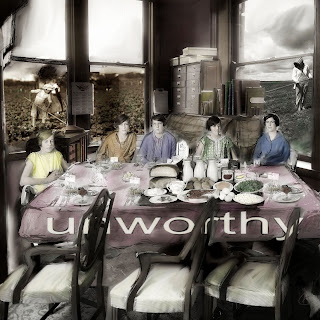
Luke 17:7-10
New International Version (NIV)
7 “Suppose one of you has a servant plowing or looking after the sheep. Will he say to the servant when he comes in from the field, ‘Come along now and sit down to eat’? 8 Won’t he rather say, ‘Prepare my supper, get yourself ready and wait on me while I eat and drink; after that you may eat and drink’? 9 Will he thank the servant because he did what he was told to do? 10 So you also, when you have done everything you were told to do, should say, ‘We are unworthy servants; we have only done our duty.’”
This isn't a heartwarming promise of gratitude. In fact, it's quite the opposite. Jesus, talking to his disciples, has some lessons to heed.
The story is that of a servant, and by servant I mean someone bound to another. Metaphorically this is someone who has given himself up wholly to another's will. The servant does something ordered or prescribed and basically Jesus says not to expect that these actions suddenly change the nature of the relationship. The teachable point is to us, Jesus actually says, "So you"... that means me and you, we should say to ourselves "we are unworthy".
The Greek for the word unworthy is achreios which also means unprofitable, useless and unneeded. Another humility reminder. We live in a society that tells us we are special so often, that I think at times this is our approach to God. It's a hard to remember that actually, we are not needed. There's a great quote by CS Lewis that speaks to this, "He who needs nothing, chose to need us, because we need to be needed".
The next truth in this passage reminds us of our relationship to God. 1 Corinthians 7:22 says it well, "..likewise also he that is called, being free, is Christ's servant". When we turn over our lives to Christ, we are essentially becoming bound, a bond-servant, to him. As such, this passage reminds us there are things expected for us to do. These expectations aren't done to earn affection, or improve status, but are merely our duty.
Here comes the great paradox of Christ. Though we are meant to be slaves unto him, shifting our will to his will, astonishingly he molds that bond into that of adoption. Galatians 4:7 specifically says, "So you are no longer a slave, but God's child; and since you are his child, God has made you also an heir."
Paradoxes are confusing! I think the message from Christ is this: We are unneeded slaves who should do good things not to earn his love or improve our status. Reading the Bible, going to church, serving our neighbors, this is expected. If we do those things to get a seat at his table we are missing the point. The secret is, though unworthy bond-servants, we are already at his table, adopted as heirs, welcome to his riches because of love and not from doing our duties.
Time to check my actions. Why do I do what I do? Am I expecting thanks? Am I expecting blessings? Do I think this will move me closer to God? And can I really identify with being unworthy? Until I recognize I am not needed, I won't grasp how profound it is that God has actually chosen to need me.
